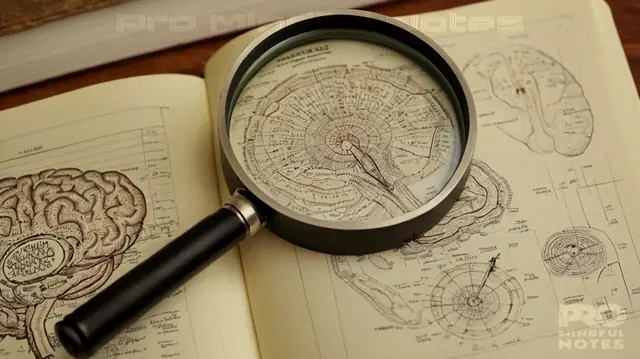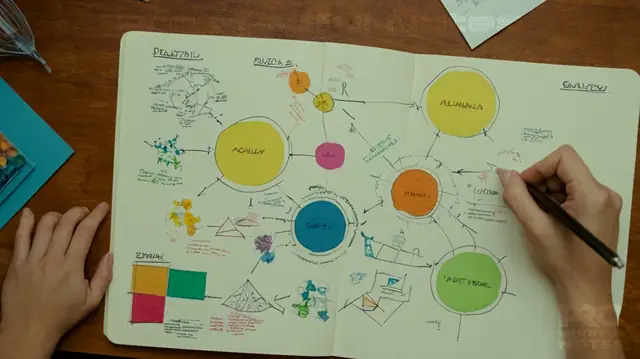Crafting Engaging Reports for Accurate Psychological Insights

In the field of psychology, creating engaging and accurate psychological assessment reports is a crucial aspect of a psychologist's job. When it comes to crafting these reports, having a well-structured template such as a psychological assessment report template can make all the difference. In this article, we will delve into the art of writing a comprehensive psychologist report, highlighting essential components and best practices for creating clear and concise documents that provide actionable insights.
We will explore various aspects of psychology assessment report writing, including understanding referral questions, gathering data from multiple sources, integrating findings, and communicating results in a way that is easy to comprehend. By examining real-world examples, such as an example of clinical assessment report, we will demonstrate how these principles can be applied to everyday practice. Additionally, this article will provide valuable guidance on creating a thorough and thoughtful psychology assessment report example that showcases your expertise and provides accurate psychological evaluation report.
Through a step-by-step approach to writing a psychological report, we aim to empower psychologists with the skills and knowledge required to produce high-quality documents. Whether you are just starting out in your career or seeking ways to improve your current reporting style, this article will offer actionable tips on how to craft compelling reports that accurately capture psychological insights. By incorporating practical examples of psychological assessment report format, we will illustrate the importance of attention to detail and clear communication when writing a psychology assessment report.
- Understanding Referral Questions and Gathering Data
- Integrating Findings from Multiple Sources
- Communicating Results in a Clear and Concise Manner
- Crafting Reports that Provide Actionable Information
- The Role of Psychological Assessment Reports in Diagnosis, Treatment, and Continuity of Care
- Overcoming Challenges in Crafting Engaging Reports
- Conclusion
- Video about Crafting Engaging Reports for Accurate Psychological Insights
Understanding Referral Questions and Gathering Data
When crafting a comprehensive psychologist report, it's essential to start by understanding the referral questions that necessitated the evaluation. A thorough review of these questions helps psychologists focus their inquiry, gather relevant data, and ultimately inform the findings presented in the final report. To effectively address the referral questions, psychologists must consider multiple sources of information, including interviews with clients or caregivers, behavioral observations, and review of relevant documents such as medical records or psychological evaluations.
In developing a psychological assessment report template, it's crucial to gather sufficient data from which to draw informed conclusions. This may involve administering standardized tests or questionnaires, conducting clinical interviews, and gathering collateral information from various sources. The quality of the data gathered directly impacts the accuracy and usefulness of the final report. For example, consider a psychological evaluation report that assesses a client's cognitive functioning. The evaluator might administer a battery of standardized tests, such as the Wechsler Adult Intelligence Scale (WAIS) or the Repeatable Battery for the Assessment of Neuropsychological Status (RBANS), to obtain a comprehensive understanding of the client's cognitive strengths and weaknesses. By incorporating these data into a well-organized and logical report, psychologists can provide detailed insights that inform treatment planning and promote positive outcomes.
Effective psychology assessment report example reports not only present findings but also provide context, clarify relevant terminology, and offer actionable recommendations. In crafting a psychological evaluation report, it's essential to use clear and concise language, avoiding technical jargon whenever possible. The ultimate goal is to produce a report that is both informative and accessible, providing a comprehensive understanding of the client's psychological status and treatment needs.
Integrating Findings from Multiple Sources

When crafting a psychological assessment report template, psychologists must effectively integrate findings from various sources to provide a comprehensive understanding of their client's thoughts, feelings, and behaviors. This process requires careful consideration of multiple perspectives, including those gathered through interviews with the client and significant others, observation of behavior, and review of psychological tests and questionnaires.
To illustrate this concept, let's consider an example of clinical assessment report. A psychologist may conduct a comprehensive evaluation of a child who is experiencing difficulties in school. The assessment would involve gathering information from multiple sources, such as the child's teachers and parents, as well as conducting standardized psychological tests to assess the child's cognitive and behavioral functioning. By integrating these findings, the psychologist can provide a detailed psychology assessment report example, highlighting areas of strength and weakness, and offering recommendations for treatment and intervention.
When writing a psychological evaluation report, it is essential to clearly present the integration of findings from various sources. This can be achieved by using clear headings, concise language, and a logical flow of ideas. A well-structured psychology assessment report format should include an introduction that sets the context for the assessment, followed by a summary of the methods used and the findings obtained. The report should then conclude with recommendations for future action and any necessary next steps.
The art of integrating findings from multiple sources is a crucial aspect of writing a comprehensive psychological report writing. By presenting a cohesive and well-organized account of the assessment process, psychologists can effectively communicate their findings to clients, caregivers, and other healthcare professionals. This enhances the accuracy and relevance of the psychological assessment reports, ultimately contributing to more informed decision-making and improved outcomes for those being served.
Communicating Results in a Clear and Concise Manner

When it comes to writing a psychological report, clarity and concision are essential. A well-crafted psychologist report should be easy to understand, even for non-specialists. To achieve this, psychologists can utilize a standardized psychological assessment report template that outlines the key components of the report, including the referral question, assessment methods, findings, and recommendations. This framework helps ensure that all necessary information is included while also promoting a clear and organized presentation.
For instance, a clinical assessment report might begin with an introduction that summarizes the client's presenting concerns and goals. The main body of the report would then detail the assessment process, including any relevant tests or measures used to gather data. The findings section would provide a clear and concise summary of the results, highlighting key strengths, weaknesses, and areas for improvement. Finally, the recommendations section would offer actionable advice on how to address the client's concerns, drawing upon the insights gained from the psychology assessment report.
In addition to these structural guidelines, psychologists should also strive for consistency in their language and terminology throughout the report. This helps to create a clear and coherent narrative that is easy to follow. For example, using a standardized format for reporting results on various psychological tests or measures can help facilitate comparisons across different assessments. By following these best practices, psychologists can produce high-quality psychological evaluation reports that effectively communicate their findings to clients and other professionals alike.
Crafting Reports that Provide Actionable Information
When it comes to psychology assessment report writing, the goal is to provide actionable information that can inform diagnosis, treatment, and continuity of care for clients. A well-crafted report should be concise, yet comprehensive, and should integrate findings from multiple sources. By using a psychological assessment report template, psychologists can ensure that their reports are organized, easy to follow, and effectively communicate their results.
To get started, consider including an overview or summary of the client's case, highlighting key issues, goals, and recommendations. This will help provide context for readers who may not be familiar with the client's history or situation. Be sure to include examples of clinical assessment report findings and observations that support your conclusions. Additionally, consider using clear and concise headings and subheadings to break up the text and make it easier to scan.
A good psychology assessment report example should also incorporate relevant data and results from various assessments and evaluations, such as standardized tests or behavioral observations. This will help provide a comprehensive understanding of the client's strengths, weaknesses, and potential areas for improvement. By following these guidelines, psychologists can create psychological evaluation reports that are not only informative but also engaging and easy to understand.
The Role of Psychological Assessment Reports in Diagnosis, Treatment, and Continuity of Care

When it comes to providing accurate and comprehensive care to clients, psychological assessment report templates play a crucial role. A well-crafted psychologist report, for instance, can serve as the foundation for diagnosing mental health conditions, such as anxiety disorders or depression. By using a standardized psychology assessment report format, psychologists can gather and analyze data from various sources, including client interviews, behavioral observations, and review of previous treatment records.
The importance of writing psychological reports cannot be overstated. A thorough example of clinical assessment report not only provides a clear picture of a client's mental health status but also informs the development of effective treatment plans. In this context, a psychology assessment report example can help clinicians identify areas for intervention and track progress over time. By regularly updating psychological evaluation reports, psychologists can monitor client's responses to treatment and make data-driven decisions about ongoing care.
In addition to informing diagnosis and treatment, psychological assessment reports also play a critical role in promoting continuity of care. By providing a comprehensive summary of a client's mental health history and current needs, these reports facilitate communication among healthcare providers, enabling seamless transitions between care settings. Moreover, writing psychological reports that are clear, concise, and well-organized can help clients and their caregivers better understand treatment goals and expectations, leading to improved outcomes and greater satisfaction with care.
Overcoming Challenges in Crafting Engaging Reports
One of the most significant challenges that psychologists face when crafting engaging reports is creating a clear and concise psychology assessment report template that effectively communicates their findings. A well-structured report helps to ensure that all relevant information is included, making it easier for clients and caregivers to understand the results. To overcome this challenge, psychologists can use examples of clinical assessment reports as inspiration, tailoring them to their specific needs. By organizing their thoughts and presenting information in a logical sequence, psychologists can create a psychologist report that is easy to follow and comprehend.
Another hurdle that psychologists may encounter when writing a psychological report is ensuring that they cover all the necessary points. A thorough psychological evaluation report requires a comprehensive review of the assessment process, including data collection methods, testing results, and observations. To overcome this challenge, psychologists can use examples of psychological assessment reports as guides, paying attention to the structure and content of the reports. By including relevant details and supporting evidence, psychologists can create a psychological report writing that effectively communicates their findings.
To make the report-writing process more manageable, psychologists can follow a specific psychological assessment report format, breaking down their writing into smaller sections or stages. This approach helps to ensure that all necessary information is included, making it easier to create a comprehensive and accurate report. Additionally, using examples of psychological assessments as inspiration can help psychologists stay focused on the task at hand. By incorporating these strategies into their report-writing routine, psychologists can produce high-quality psychology assessment report example that accurately reflects their findings and supports informed decision-making.
Conclusion

As we have seen throughout this guide, crafting engaging reports for accurate psychological insights is a crucial aspect of a psychologist's work. A well-written psychological evaluation report not only provides a comprehensive understanding of an individual's mental state but also serves as a vital tool in diagnosis, treatment, and continuity of care. By incorporating the techniques and strategies outlined in this article, you can create a high-quality psychology assessment report example that meets the needs of your clients and their caregivers.
To ensure that your reports are effective, it is essential to use a well-structured psychological assessment report template, which should include an introduction, methodology, results, and conclusion. A clear and concise writing style will also help you convey complex psychological concepts in a way that is easy for others to understand. Additionally, incorporating real-life examples of clinical assessments reports can serve as valuable illustrations of how these principles are put into practice.
The art of writing a psychological report requires attention to detail, strong communication skills, and the ability to synthesize complex psychological information. By mastering the process of creating comprehensive psychological assessment reports, psychologists can provide invaluable insights that inform treatment decisions and improve therapeutic outcomes. Whether you are an experienced psychologist or just starting your career, this guide has provided the tools and guidance necessary for producing high-quality reports that accurately capture the nuances of human behavior.
Video about Crafting Engaging Reports for Accurate Psychological Insights
Leave a Reply


Related Posts